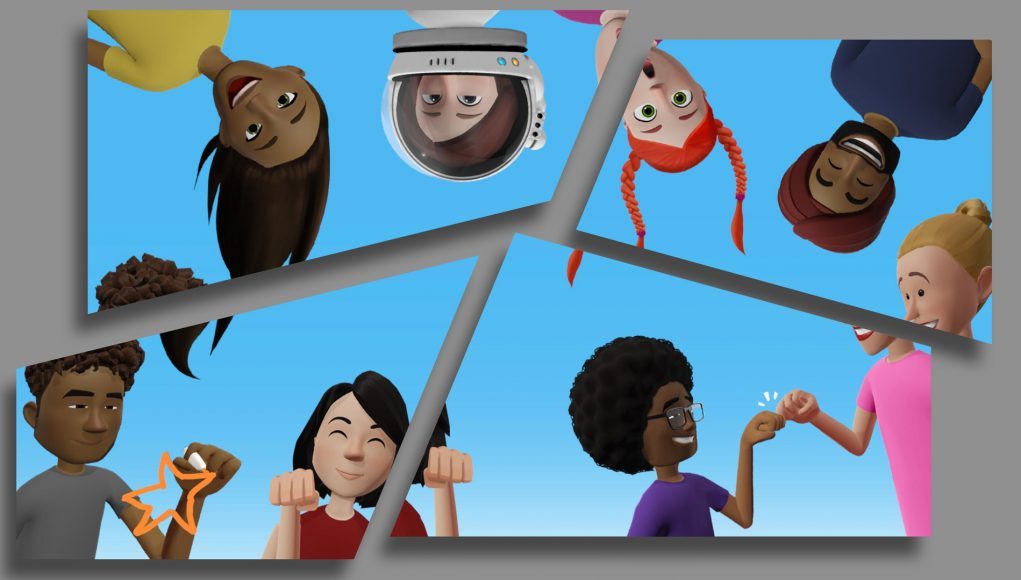Facebook’s fragmented approach to social VR hasn’t gotten any better with the launch of Quest. The company now has four separate social VR apps, and none of them are currently available on its newest headset.
With Oculus, Facebook has aimed to build the premiere VR ecosystem, but when it comes to allowing users of the company’s different headsets—Go, Quest, and Rift—to actually interact with one another, it has completely dropped the ball.
Facebook has lofty ambitions for what the far future of social interaction could look like with VR, but between the parent company and the Oculus brand, there’s a confused smattering of different social VR offerings which do a poor job of connecting users across the platform. Let’s review:
- Facebook Spaces (available on Rift & Vive)
- Allows users chat and share Facebook content (like photos and videos), draw in 3D, and video chat with non-VR users via Messenger
- Oculus Home (available on Rift)
- Allows users build virtual homes and invite friends over to talk and visit
- Oculus Rooms (available on Go & Gear VR)
- Allows users to decorate a virtual home and invite friends over to talk and visit, play mini games, share Facebook content (like photos and videos), and launch into other VR apps together
- Oculus Venues (available on Go & Gear VR)
- Allows users to watch live VR video content together
As you can see, before Quest came along, there was already a complete division among Facebook’s social VR apps which kept PC users (Rift) and mobile users (Go & Gear VR) completely separate. If you happened to own a Rift and had a friend which jumped into VR with Go as their first VR headset, there’s unfortunately no easy first-party way for you to connect with your friend in VR.
With Quest now on the market, things have only become more fragmented. While it was at least possible for Rift users to connect with other Rift users, and Go & Gear VR users to connect amongst themselves, Quest doesn’t have access to any of Facebook’s social VR apps. We would have expected at a minimum that Quest would get Rooms and Venues to link up with the company’s other mobile headsets—and it might one day—but at launch, Quest is a social island unto itself.
It’s an unfortunate situation because it fails to leverage the Oculus ecosystem that Facebook has spent so much time building. The company now has five headsets on the Oculus platform, and it’s baffling that there isn’t at least a basic first-party social VR service that works between them all. For a social media company that thrives on the network effect, Facebook has been surprisingly obtuse about social VR.

The current state of things is as if there were a Windows version of Facebook that would only connect to other Windows users, and a Mac version of Facebook that would only connect to other Mac users—while Linux (Quest in this rough analogy) wasn’t allowed to access Facebook at all.
When we asked Facebook about the state of their social VR offerings at the launch of Quest the company told us that they want to “push for having social layers that sit above all the headsets and work together,” but they have no specific plans to share. So it seems like it’s going to be a while yet until the company manages to make the Oculus platform feel like one socially connected group.
Luckily, third party developers are bridging the gap. Some social VR apps like Bigscreen manage to interconnect users on all of Oculus’ headsets, and even headsets outside the Oculus ecosystem. So even if Facebook doesn’t have it figured out yet, there’s at least somewhere in VR where friends of almost any headset can come together to be social.







